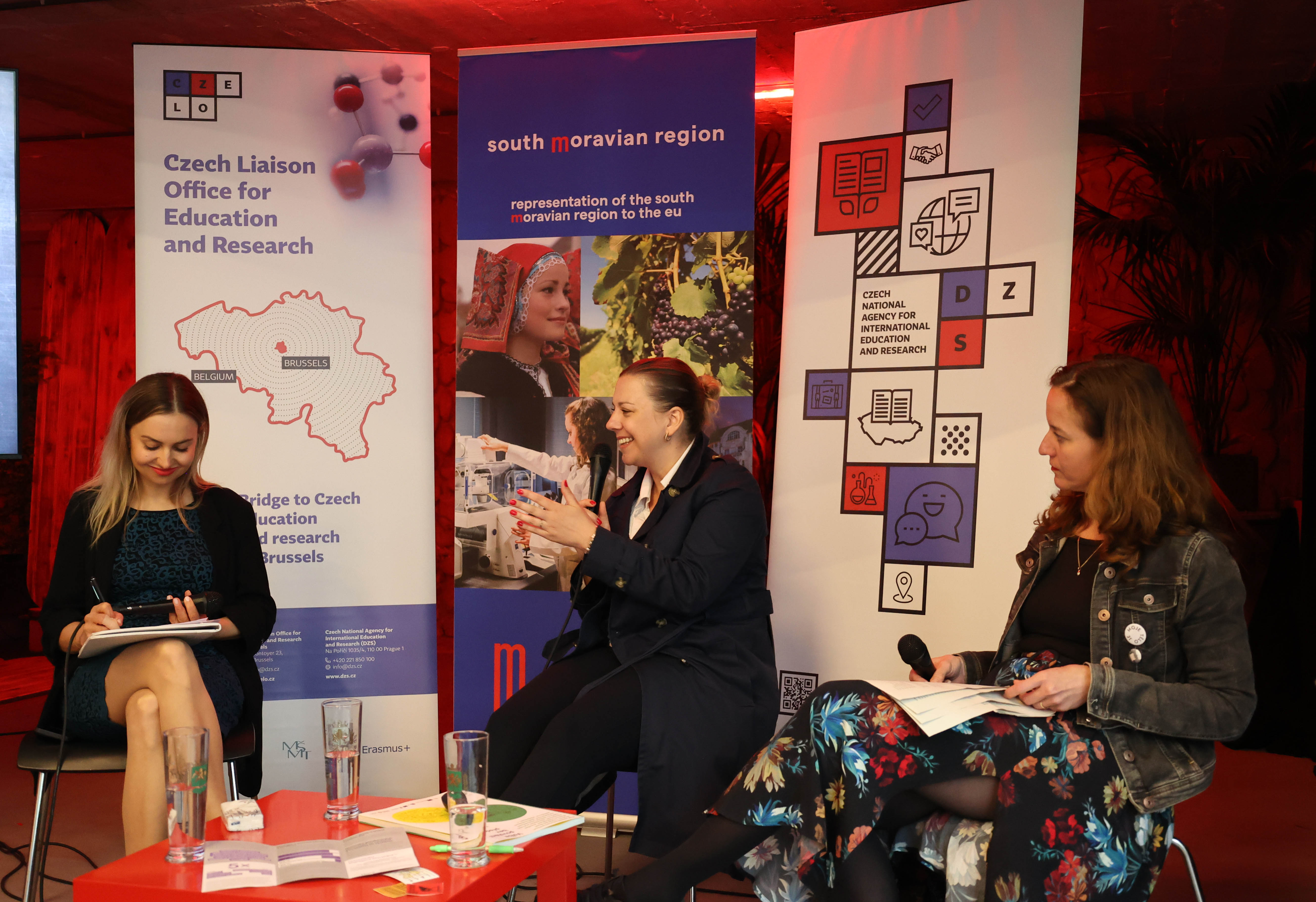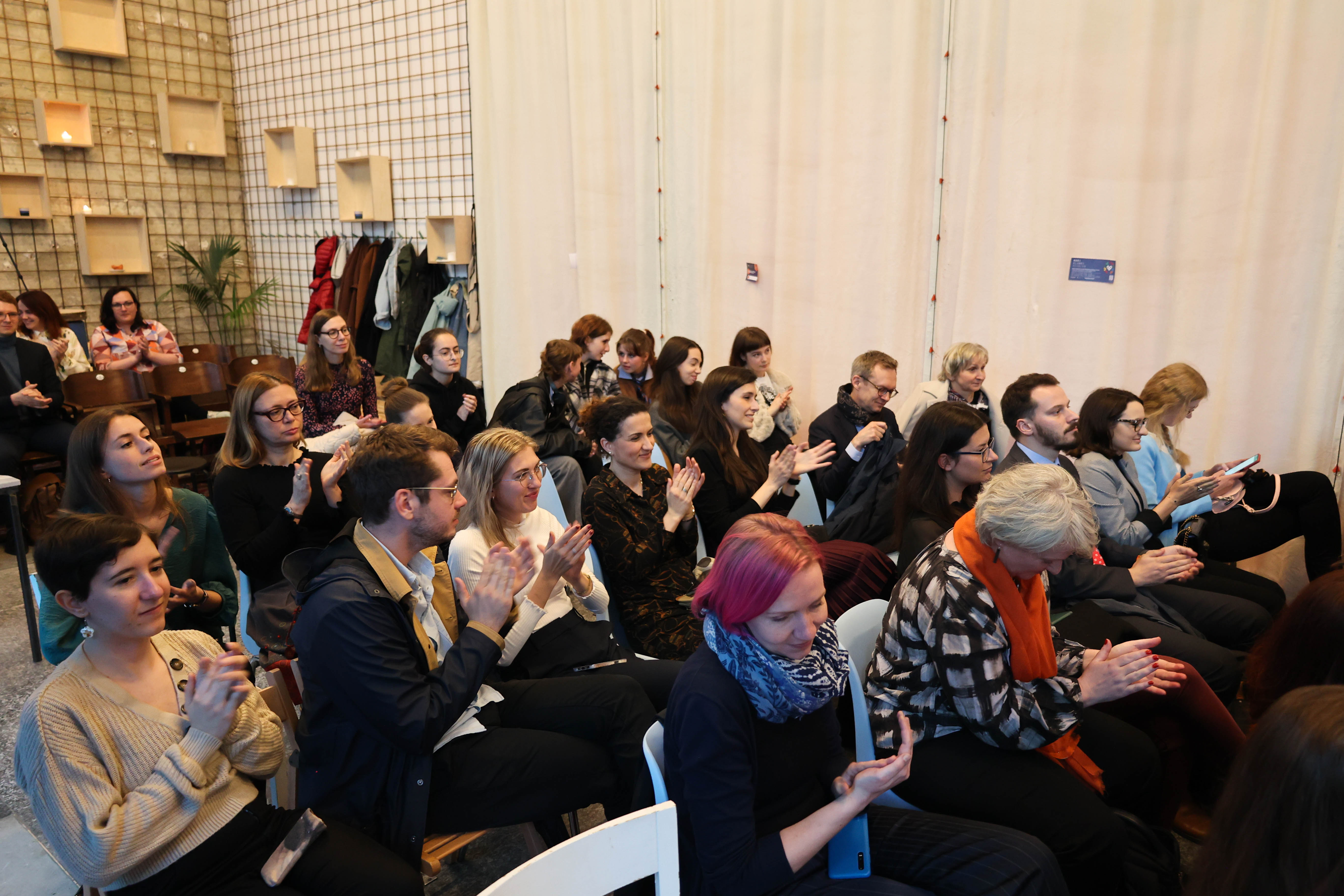Czech experts discussed gender inequalities in education
EduCafé evening „Bridging the STEM gender gap through (and in) education“ in Brussels attracted over 50 participants.
This year's first edition of the discussion evening EduCafé, organized as part of the European Year of Skills, opened the topic of gender inequalities in education with a specific focus on STEM (science, technology, engineering and math) and with further emphasis on ICT. The guests were Johana Jonáková, director of the non-profit organization Gender Studies o.p.s., and an expert on equal opportunities for women and men and social integration, and Olga Maximová, head of the development department at the non-profit organization Czechitas, which focuses on making ICT education and careers accessible to girls and women in the Czech Republic. The discussion was moderated by Zdeňka Trachtová, a foreign correspondent for Czech Radio in Brussels.
The debate addressed several questions: Why do gender inequalities in education continue to exist and where do they come from? What are the consequences of these inequalities for girls (as well as boys) and for society as a whole? What can we do to change the situation for the better?
An average of 3,300 men and 650 women graduate annually in ICT fields
Statistics show that gender inequalities in education are a real ongoing problem that society should address. At the European level, for example, there are on average 20% of women and girls among ICT students (in the Czech Republic it is just over 15%) and only one woman out of 50 chooses ICT as her field of study. This problem does not only concern ICT, at the level of the European Union only 34% of graduates of all STEM disciplines are women, and in the Czech Republic it is only 27%. At the same time, it has already been proven many times by research that being male or female does not determine the prerequisites and talents of individuals in certain fields and does not play any role in the potential choice of a profession. Inequalities are mainly caused by upbringing, the education systems, social stereotypes and society's attitude.
Children are shaped from early childhood by their parents, after which their socialization continues in the education systems at all levels, at work and in interactions with others in adult life. During the debate, Olga Maximová highlighted, among other things, the importance of role models and good practice examples, including mothers. If a mother cannot imagine ICT studies and a career for herself, because she considers it a "male" profession, it is likely that her daughter will not go in this direction either. Johana Jonáková emphasized that there are no "male" or "female" professions. It is important for teachers to be aware of social stereotypes and possible hidden gender biases in their approach to girls and boys, try to avoid them, and instead support the strengths of each child, regardless of gender.
„Talent“ is often overrated, STEM fields can be for everyone
It is therefore important to support girls (and boys) in their overall and general development during their education and to offer them all possible choices, for example when choosing a secondary school or a university. Appropriately created campaigns to support girls in studying STEM fields, which avoid the stereotypical portrayal of male and female students, can help this a lot. Even for women who have already graduated in a field other than STEM, this does not mean that they cannot decide to change careers and start working in the field of STEM, or specifically ICT, at any stage of their lives. Czechitas offers women the opportunity to take courses aimed at developing their ICT skills and subsequently help with starting a career in this field. Gender Studies o.p.s. offers, among other things, information and consultation services on the topic of the position of women and men in society, including events for pupils and young people, as well as employers.
In every profession and field, diversity and inclusion of people with different opinions are important to move society forward. Despite the fact that gender inequalities still persist in the discussed areas, a number of initiatives are emerging at the national and European levels that are trying to improve the situation both on a practical and political level.
Have a look at the photos from the event (photographer: Petra Israël). We will also post a recording of the debate on our YouTube channel in the coming days.
The discussion evening was organized on 10 May by the CZELO office in cooperation with the Representation of the South Moravian Region to the EU in Brussels.

